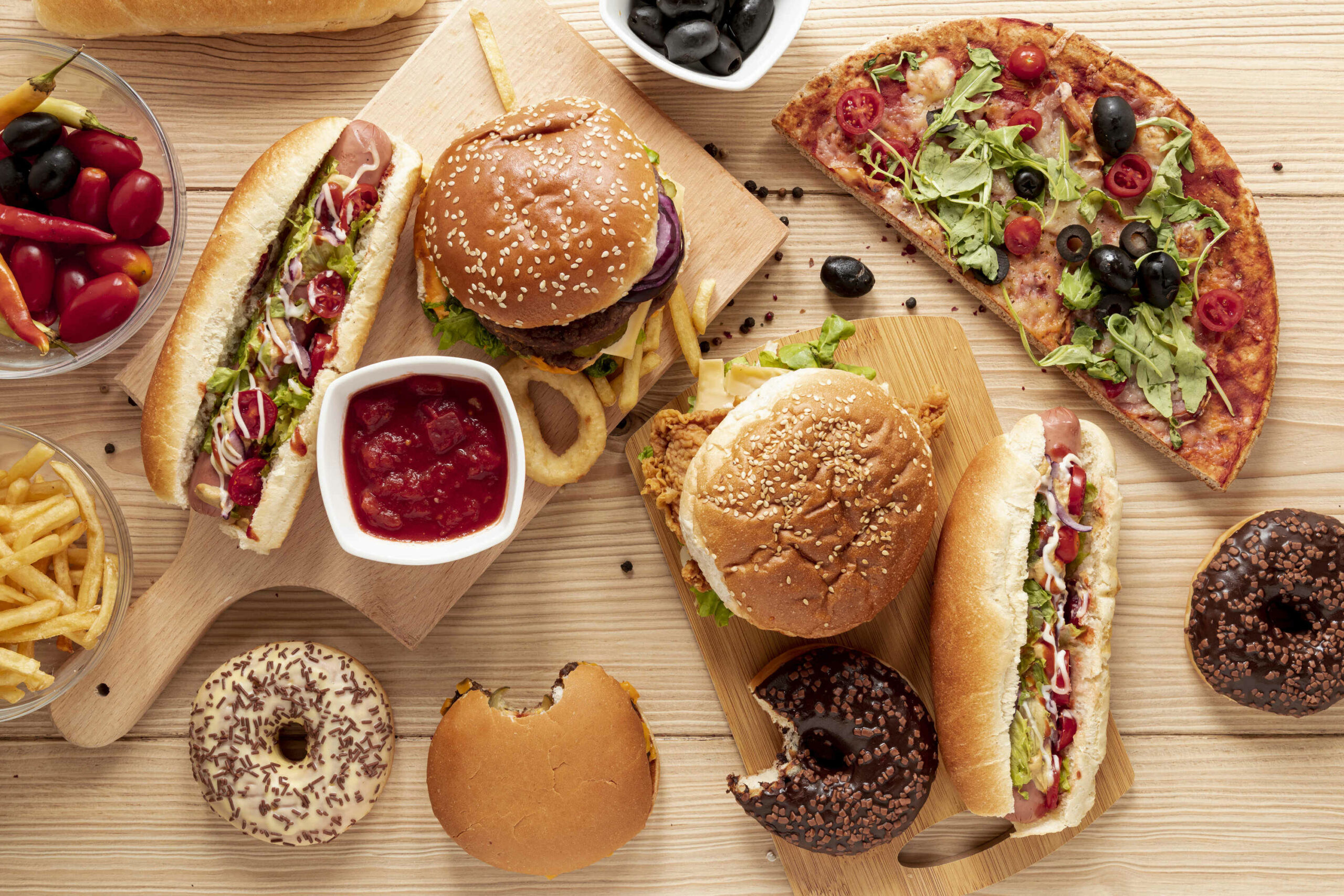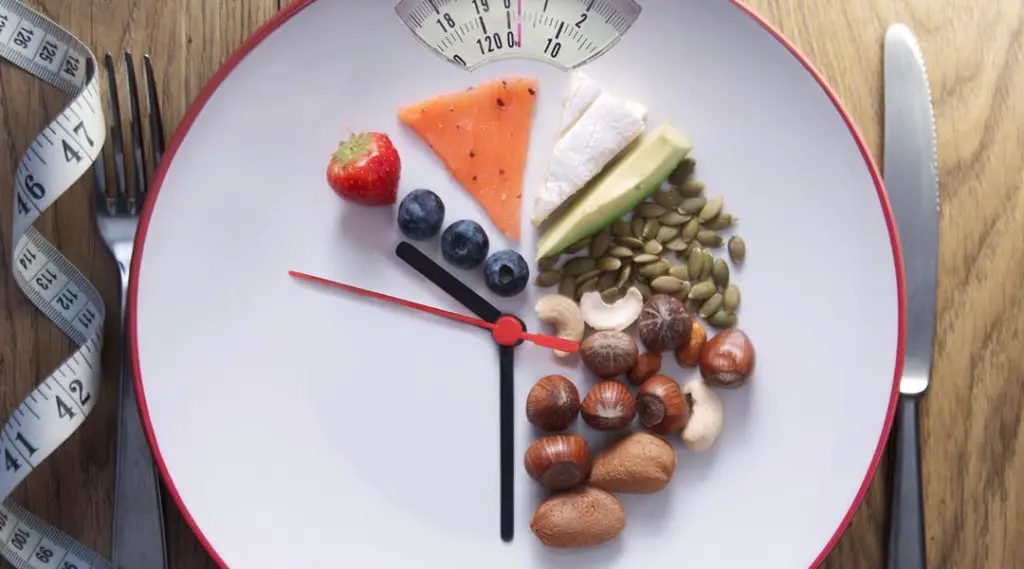In an era where the prevalence of junk food is rampant and health concerns are rising, it’s crucial to uncover the deceptive practices employed by the junk food industry. This comprehensive guide aims to shed light on the top 11 biggest lies perpetuated by this industry, from misleading marketing tactics to hidden ingredients, and empower consumers to make informed choices about their diet and health.
Low-Fat” Equals Healthy
Many junk food products boast about being “low-fat” or “fat-free,” implying that they are healthier options. However, these claims often mask high levels of added sugars, artificial additives, and refined carbohydrates.
Fat is not inherently unhealthy, and some fats, such as those found in nuts, seeds, and avocados, are essential for overall health. Consuming excessive sugar and processed carbohydrates can contribute to obesity, diabetes, and other health issues.
Natural” Ingredients
Junk food brands often use terms like “natural” or “all-natural” to imply that their products are made with wholesome ingredients. However, these terms are not regulated by the FDA and can be misleading.
Many so-called “natural” junk foods contain artificial flavors, colors, preservatives, and other additives that are far from natural. Reading ingredient labels and understanding what each ingredient entails is essential for making informed choices.
Fortified” with Vitamins and Minerals
Some junk food products claim to be “fortified” with vitamins and minerals, giving the impression that they are nutritious choices.
While it’s true that some junk foods are fortified with vitamins and minerals, this does not make them healthy options. These added nutrients often do not compensate for the high levels of sugar, salt, unhealthy fats, and other harmful ingredients present in these products.
Low-Calorie” for Weight Loss
Junk food marketed as “low-calorie” may seem like a guilt-free option for those trying to lose weight. However, these products often lack essential nutrients and can leave consumers feeling unsatisfied, leading to overeating later on.
Sustainable weight loss is about more than just calorie counting. Choosing nutrient-dense foods that nourish the body and support overall health is crucial for long-term success.
Made with Whole Grains”
Some junk food products claim to be “made with whole grains,” suggesting that they are healthier choices. However, these products often contain refined grains as well, negating the potential health benefits of whole grains.
Whole grains are indeed a healthier option than refined grains, as they contain more fiber, vitamins, and minerals. However, it’s essential to look beyond marketing claims and check the ingredient list for whole grains as the first ingredient.
Real Fruit” Flavors
Junk food items, such as fruit-flavored snacks or drinks, may claim to contain “real fruit” flavors, giving the impression of being healthier alternatives to fresh fruit.
In many cases, these products contain minimal amounts of actual fruit and are instead flavored with artificial additives and sweeteners. Consuming whole fruits is always the better choice for obtaining essential nutrients and fiber.
Low-Carb” for Health
With the popularity of low-carb diets, many junk food products now boast about being “low-carb” or “keto-friendly,” suggesting that they are healthier options.
While reducing carb intake can be beneficial for some individuals, many low-carb junk foods are highly processed and lack essential nutrients. Opting for whole, unprocessed foods is a better way to support overall health and well-being.
Sugar-Free” Alternatives
Junk food items labeled as “sugar-free” may seem like healthier choices, especially for those watching their sugar intake.
Many sugar-free products contain artificial sweeteners, which have been linked to various health issues, including weight gain, metabolic syndrome, and disruption of gut microbiota. Moderation and choosing naturally sweetened options are advisable.
Low-Sodium” for Heart Health
Some junk food products claim to be “low-sodium,” targeting consumers concerned about heart health and high blood pressure.
While reducing sodium intake can be beneficial for heart health, many low-sodium junk foods are still high in unhealthy fats, sugars, and other additives. Eating a balanced diet rich in fruits, vegetables, lean proteins, and whole grains is essential for heart health.
Gluten-Free” for Wellness
Junk food items labeled as “gluten-free” may appeal to individuals with gluten sensitivity or celiac disease, suggesting that they are healthier options.
While it’s essential for those with gluten-related disorders to avoid gluten-containing foods, many gluten-free junk foods are still highly processed and lack essential nutrients. Choosing naturally gluten-free whole foods is a better way to support overall health.
Low-Calorie” Beverages
Beverages marketed as “low-calorie” or “diet” may seem like healthier alternatives to sugary drinks, promising to help consumers manage their weight.
Many low-calorie beverages contain artificial sweeteners, which have been associated with weight gain, metabolic disturbances, and increased cravings for sweet foods. Opting for water, herbal tea, or naturally flavored drinks is a better choice for hydration.
FAQs
Are there any regulations in place to prevent false claims by the junk food industry?
While there are regulations governing food labeling, some terms, such as “natural” and “low-fat,” are not well-defined or strictly enforced by the FDA.
How can consumers identify deceptive marketing tactics used by the junk food industry?
Reading ingredient labels, researching brands and products, and being skeptical of health claims that seem too good to be true can help consumers make informed choices.
Are all processed foods considered junk food?
Not all processed foods are considered junk food. Some minimally processed foods, such as canned beans or frozen vegetables, can be part of a healthy diet. However, highly processed foods high in sugar, unhealthy fats, and additives are typically classified as junk food.
Can junk food be part of a balanced diet in moderation?
While occasional indulgence in junk food is unlikely to cause harm, relying heavily on these products can contribute to poor health outcomes. A balanced diet rich in whole, nutrient-dense foods is essential for overall health and well-being.
Are there any healthy alternatives to junk food?
Yes, there are plenty of healthy alternatives to junk food, including fruits, vegetables, nuts, seeds, whole grains, and lean proteins. These foods provide essential nutrients, fiber, and energy without the added sugars, unhealthy fats, and artificial additives found in junk food.
Can the junk food industry be held accountable for deceptive marketing practices?
While there have been efforts to hold the junk food industry accountable for deceptive marketing practices, including lawsuits and regulatory actions, consumers play a crucial role in demanding transparency and making informed choices.
What steps can individuals take to reduce their consumption of junk food?
Some strategies for reducing junk food consumption include meal planning, cooking at home, reading ingredient labels, choosing whole foods over processed options, and being mindful of portion sizes and cravings.
Conclusion
The junk food industry’s deceptive marketing tactics and false claims can mislead consumers and contribute to poor dietary choices and negative health outcomes. By recognizing and understanding the top 11 biggest lies perpetuated by this industry, consumers can make informed decisions about their food choices, prioritize whole, nutrient-dense foods, and advocate for transparency and accountability in the food industry. With awareness and education, individuals can reclaim control over their diet and health, leading to improved well-being and quality of life.
- Profhilo Treatment Near Forest Green, Surrey - May 31, 2025
- Vista Edge Vape Oil Leakage: How To Prevent And Fix It - May 31, 2025
- How To Recognize And Heal From The Damaging Effects Of Love Bombing - May 31, 2025




